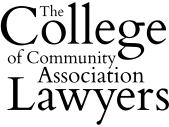 Polish,
Polish,  Ukrainian,
Ukrainian,  Russian,
Russian,  Hindi,
Hindi,  Spanish,
Spanish,  French and
French and  Greek.
Greek.
Recent Blog Posts
Why Have Condo Association Insurance Costs Doubled Since 2022?
 It has been a tough couple of years for condominium owners and homeowners associations. Property insurance costs have almost doubled since 2022, affecting all property owners but particularly condo associations and condo owners. Nowhere has this change been more acutely felt than in Florida, where condominiums have long been considered a great investment but now are facing troubling headwinds. Florida is not alone in this trend, however, as other states including Illinois and California have been affected as well. For any questions or concerns about these new developments, a qualified attorney representing condominium associations can help.
It has been a tough couple of years for condominium owners and homeowners associations. Property insurance costs have almost doubled since 2022, affecting all property owners but particularly condo associations and condo owners. Nowhere has this change been more acutely felt than in Florida, where condominiums have long been considered a great investment but now are facing troubling headwinds. Florida is not alone in this trend, however, as other states including Illinois and California have been affected as well. For any questions or concerns about these new developments, a qualified attorney representing condominium associations can help.
Data on the Rising Costs
Average commercial condo insurance costs have risen on average by 103 percent since 2022, from $72,570 to $147,3812. These types of policies cover properties including structures, irrigation systems, and roofs. In the second quarter of 2024 alone the cost rose 6.6 percent.
Significant Condominium and Homeowner Association Laws
 In the realm of homeowner’s associations (HOAs) and condominium law, attorneys play a pivotal role in ensuring compliance with important legislation such as the Fair Housing Act (FHA) and the Americans with Disabilities Act (ADA). These laws are designed to promote equal opportunity and accessibility in housing, protecting the rights of people with disabilities. Navigating these complexities can be daunting, which is where assistance from legal professionals becomes especially valuable.
In the realm of homeowner’s associations (HOAs) and condominium law, attorneys play a pivotal role in ensuring compliance with important legislation such as the Fair Housing Act (FHA) and the Americans with Disabilities Act (ADA). These laws are designed to promote equal opportunity and accessibility in housing, protecting the rights of people with disabilities. Navigating these complexities can be daunting, which is where assistance from legal professionals becomes especially valuable.
Understanding the Fair Housing Act
The Fair Housing Act prohibits discrimination based on things like race, color, religion, sex, national origin, familial status, and disability. For HOAs and condominium boards, this means that policies and practices must be carefully crafted to avoid any discrimination.
Differences Between Condominium and Homeowner Associations
 In Illinois, property ownership can take various forms, two of the most common being condominiums and single-family homes. With these two types of property come different governing bodies: condominium associations and homeowner associations (HOAs). Understanding the distinctions between them is crucial for property owners, prospective buyers, and those interested in community living. For any questions or concerns regarding these two associations, contact a qualified attorney.
In Illinois, property ownership can take various forms, two of the most common being condominiums and single-family homes. With these two types of property come different governing bodies: condominium associations and homeowner associations (HOAs). Understanding the distinctions between them is crucial for property owners, prospective buyers, and those interested in community living. For any questions or concerns regarding these two associations, contact a qualified attorney.
How Condominium and Homeowner Associations Differ
Structure and Governance
Condominium associations govern condominiums, where multiple units are owned individually, but common areas (like lobbies, gardens, and stairwells) are jointly owned. The Illinois Condominium Property Act governs these associations, outlining how they operate, from the election of board members to the management of common expenses.
How Illinois Condominium Associations May Be Affected by New Accessible Parking Requirements
 The Illinois legislature recently passed a bill that updates the Illinois Condominium Property Act (ICPA) to place requirements on condominium associations to provide parking accommodations for unit owners with disabilities. Condo associations and boards will need to understand their requirements under the new law, which goes into effect on January 1, 2025.
The Illinois legislature recently passed a bill that updates the Illinois Condominium Property Act (ICPA) to place requirements on condominium associations to provide parking accommodations for unit owners with disabilities. Condo associations and boards will need to understand their requirements under the new law, which goes into effect on January 1, 2025.
New Requirements Regarding Accessible Parking
Condominium associations must adopt policies that will provide reasonable accommodations to unit owners who require accessible parking due to disabilities. These policies must detail the procedures followed when a unit owner submits a request for a parking space that is accessible. They should also specify the timeframes that will be followed when a condominium board reviews these requests. These timeframes must be reasonable, and the review period cannot be longer than 45 days. New or updated policies must be adopted by condominium associations by April 1, 2025.
Three Ways to Maximize Wrongful Death Compensation
 Losing a loved one due to someone else's negligence is an incredibly difficult and emotional experience. While there is no amount of money that can truly compensate for the loss, seeking a wrongful death lawsuit against the at-fault party can be financially beneficial in various ways.
Losing a loved one due to someone else's negligence is an incredibly difficult and emotional experience. While there is no amount of money that can truly compensate for the loss, seeking a wrongful death lawsuit against the at-fault party can be financially beneficial in various ways.
In the aftermath of a loved one's death, family members often wonder how best to maximize the compensation that may be available to them. Contact a lawyer to ensure you and your family can strategically pursue compensation related to your loved one's wrongful death.
Best Strategies for Maximizing Wrongful Death Compensation
Investigate the Cause of Death Thoroughly
The foundation of any wrongful death claim is a comprehensive investigation into the cause of the death. As a result, it is crucial to gather all relevant evidence related to the death, which can then be used to add credibility to your claim that the death was wrongful. Evidence may include:
Three Reasons Why Homeowner Associations Exist
 Homeowners’ associations (HOAs) are organizations that manage and maintain the common interests of homeowners, ensuring that neighborhoods remain pleasant, orderly, and inviting. While some may view HOAs as restrictive, they serve essential purposes that contribute significantly to community living. If you represent an HOA and are seeking legal guidance, contact an attorney as soon as possible.
Homeowners’ associations (HOAs) are organizations that manage and maintain the common interests of homeowners, ensuring that neighborhoods remain pleasant, orderly, and inviting. While some may view HOAs as restrictive, they serve essential purposes that contribute significantly to community living. If you represent an HOA and are seeking legal guidance, contact an attorney as soon as possible.
Essential Roles of Homeowners Associations
Maintaining Order and Harmony
One of the most important functions of an Illinois HOA is maintaining proper order within a community. By establishing rules and regulations—often called covenants, conditions, and restrictions (CC&Rs)—HOAs help create a sense of community and promote friendly living.
Understanding the Surge in Condominium Insurance Premiums
 Condominium associations across the country are facing a financial strain due to a substantial increase in insurance premiums. A surge in natural disasters, increased litigation, rising construction costs, and inflation largely drive these hikes. This spike in premiums is a significant concern as it directly impacts the budgets of these associations and the dues paid by unit owners. Understanding the issue is important, as is learning more about how condominium associations can benefit from the assistance of a qualified attorney in Illinois.
Condominium associations across the country are facing a financial strain due to a substantial increase in insurance premiums. A surge in natural disasters, increased litigation, rising construction costs, and inflation largely drive these hikes. This spike in premiums is a significant concern as it directly impacts the budgets of these associations and the dues paid by unit owners. Understanding the issue is important, as is learning more about how condominium associations can benefit from the assistance of a qualified attorney in Illinois.
Why the Increase in Insurance Premiums is a Big Deal
Here is why the increase in insurance premiums matters:
CAI Sues to Exempt Community Associations from Corporate Transparency Act
 In a groundbreaking decision last month, the Community Associations Institute (CAI) Board of Trustees approved the filing of a lawsuit aimed at exempting community associations from the strict requirements detailed in the Corporate Transparency Act (CTA). The CTA has brought with it an avalanche of obligations that the CAI firmly believes are overburdensome for community associations.
In a groundbreaking decision last month, the Community Associations Institute (CAI) Board of Trustees approved the filing of a lawsuit aimed at exempting community associations from the strict requirements detailed in the Corporate Transparency Act (CTA). The CTA has brought with it an avalanche of obligations that the CAI firmly believes are overburdensome for community associations.
The CAI represents the rights and interests of homeowners, condominium associations, and other community associations worldwide. To ensure that their rights are not trampled upon, attorneys representing the CAI are standing firm, ready to shield the community association housing model and the interests of its members.
Exploring the Role of Lawyers for Condominium and Homeowner Associations
 In the dynamic world of condominium and homeowner associations, having the right to legal support is not just a luxury but a necessity. Legal issues, ranging from compliance with federal laws to the intricacies of contract reviews and complex legal proceedings, require seasoned legal guidance.
In the dynamic world of condominium and homeowner associations, having the right to legal support is not just a luxury but a necessity. Legal issues, ranging from compliance with federal laws to the intricacies of contract reviews and complex legal proceedings, require seasoned legal guidance.
Illinois condominium and homeowner association attorneys offer valuable services that can safeguard your association's interests, ensuring smooth operations and legal compliance. Here are some key areas where lawyers can offer guidance that can make a positive difference.
Compliance with Fair Housing Act and the Americans with Disabilities Act
Compliance with federal laws such as the Fair Housing Act (FHA) and the Americans with Disabilities Act (ADA) is critical for any association. FHA ensures non-discriminatory practices in housing, while ADA mandates accessibility for people with disabilities. An experienced lawyer can ensure your association's policies and practices are in line with these laws.
Do Injuries from a Medical Device Constitute Medical Negligence?
 Medical negligence, also known as medical malpractice, occurs when a healthcare professional provides substandard care that results in harm to the patient. With the rise in the use of various medical devices in modern healthcare, the question of whether injuries from these devices fall under the realm of medical negligence has become an increasingly common question. The short answer is yes – injuries caused by medical devices can indeed constitute medical negligence, but the specifics may involve several different factors. If you were harmed by a medical device and are interested in taking legal action, our Illinois lawyer can help.
Medical negligence, also known as medical malpractice, occurs when a healthcare professional provides substandard care that results in harm to the patient. With the rise in the use of various medical devices in modern healthcare, the question of whether injuries from these devices fall under the realm of medical negligence has become an increasingly common question. The short answer is yes – injuries caused by medical devices can indeed constitute medical negligence, but the specifics may involve several different factors. If you were harmed by a medical device and are interested in taking legal action, our Illinois lawyer can help.
The Role of Medical Devices in Modern Healthcare
Medical devices range from simple tools like scalpels to complex machinery like pacemakers and MRI scanners. They play a critical role in diagnosing, monitoring, and treating medical conditions. However, when these devices fail to be appropriately used, they can cause severe injuries or complications. Determining liability in such cases often requires carefully examining the situation's circumstances.















